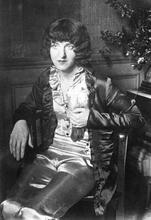Lia Levi
Lia Levi was born in Pisa, Italy, in 1931 to a Jewish-Piedmontese family. Her first novel, Una bambina e basta (Just a Child), told the story of a Jewish girl who finds refuge from Nazi persecution in a Catholic convent near Rome and was published in 1994. Its sequel, Se va via il re (If the King Goes Away), quickly followed in 1996. Levi’s novel L’albergo della magnolia (The Jewish Husband) won the Moravia Prize for fiction in 2001 and was translated into English in 2009, winning her immediate critical acclaim in the English-speaking world. Levi’s children’s books aim to teach children about contemporary Italian historical events through making them the main protagonists. Levi became the editor-in-chief of the monthly magazine Shalom in 1967.
Background and Family
Lia Levi was born in Pisa on November 9, 1931, to a Jewish family of Piedmontese origins. Her father, Alessandro (1901–1973), who was born in Brescia, was an attorney at law. Her mother, Leontina Segre (1906–1984), was born in Turin and had a degree in law. They married in 1931. After the promulgation of the fascist racial laws in 1938 and the beginning of antisemitic persecutions, Lia Levi’s family left Northern Italy and found refuge in Rome. After the end of World War II Levi remained in Rome, where she completed her studies in philosophy and became a successful journalist. She directed the Jewish monthly Shalom for more than thirty years.
In 1957 Levi married Roberto Calderoni (b. 1931) and they had two children: Fabio (b. 1958) and Dario (b. 1965). The couple divorced in 1970. In 1977 Levi married Luciano Tas.
Literary Writings
Lia Levi is best known as the author of several works of fiction largely dedicated to Jewish themes. She belongs to a generation of cultured and well-integrated Jewish intellectuals whose literary works testify to the renewed interest in Jewish history and cultural traditions that developed among European intellectuals and artists throughout the twentieth century.
Levi’s first novel, Una bambina e basta (Just a Child), for which she was awarded the Elsa Morante Prize in 1994, tells the story of a Jewish girl who finds refuge from Nazi persecution in a Catholic convent near Rome. The novel depicts the complex relationship between the little girl and her mother; it describes the girl’s interest in the world of the convent, not threatened by discrimination and persecution, and her mother’s efforts to protect her daughter’s life and identity from annihilation. Only at the end of the war does the mother tell her daughter that she will have the freedom to choose who she wants to be.
In the novel’s sequel, Se va via il re (If the King Goes Away), the Jewish girl who faced the fascist racial laws and antisemitic persecutions finds herself in a country struggling to find its post-war political identity, where Italians are asked to decide whether they want to live under a monarchy or under republican rule. The important historical moment is presented in the novel from the point of view of a class of elementary school pupils whose fights mirror the conflicts that divided Italian society at the time.
In these novels, as well as in most of Lia Levi’s works of fiction, there are few literary ornaments or rare figures of speech. On the contrary, the story is told in a simple and colloquial style. The narrative voice presents tragic historical events, personal and collective history, as a sequence of ordinary facts. The leisurely pace of Levi’s clear prose, though far from simple, evokes the danger that such events, despite their horrendous nature, could recur.
Jewish Identity in Levi’s Works
Levi’s works also convey to the readers a strong sense of confidence in the act of writing and in the possibility of transmitting historical memory to future generations. Faithful to the Jewish commandment of preserving the memory of the past—to the command to remember the exodus from Egypt every day of one’s life—Lia Levi wrote books in which historical events of our recent past are also told for children. Tutti i giorni di tua vita (All the Days of Your Life), a novel published in 1997 about a Jewish Italian family from 1921 to the present, is dedicated to the author’s young nephews. Her hope was that once they become adults, the book would help them understand the tragic events that haunt the history of the twentieth century.
It is not by chance, then, that Lia Levi is also a well-known and successful writer of children’s books. In Una valle piena di stelle (A Valley Full of Stars) and Da quando sono tornata (Since I Came Back), to name just two of her many children’s books, Lia Levi tells historical children’s tales. By combining the author’s personal experience of tragic historical facts, such as the promulgation of the fascist racial laws in 1938 and the persecution of World War II, with accurate historical research on contemporary Italian history, Levi aims not only to teach children about historical events, but also to make them the main protagonists of important events in contemporary Italian history. Sometimes these tales are told from the point of view of a girl. In Un Garibaldino di nome Chiara (A Garibaldian Named Chiara), for instance, Lia Levi tells the story of eleven-year-old Chiara who, disguised as a boy, follows her father, one of Garibaldi’s loyal captains, in the exploits that will lead to the unification of Italy.
In Che cos’è l’antisemitismo? Per favore rispondete (What is Antisemitism? Please Reply), Lia Levi tackles a non-narrative genre. Born out of a series of meetings with students in schools all over Italy, the book gathers some of most frequently asked questions about Jews, Judaism and antisemitism and tries to obliterate the prejudices that still affect the relationship between Jews and non-Jews in Italy.
Literary Legacy and Acclaim
Lia Levi’s books express a belief in the importance of the art of writing. With her clear conversational prose, she shows us that the novel, as a literary genre, helps in the preservation of memory. Her novels provide insight into the trials and tragedies facing Italian Jews during the twentieth century as well as documentation of their great contributions to the development of Italian civilization. From her writing, Levi’s readers gain a truer emotional and intellectual understanding of the past.
Levi has received the following awards: Candoni; Elsa Morante (1994); Castello (1997); Moravia (2001); Grinzane Cavour (2001); Fenice Europa (2003); Cento.
SELECTED WORKS BY LIA LEVI
Novels
Una bambina e basta (Just a Child). Rome: 1994.
Quasi un’estate (Almost a Summer). Rome: 1995.
Se va via il re (If the King Goes Away). Rome: 1996.
Tutti i giorni di tua vita (All the Days of Your Life). Rome: 1997.
L’albergo della magnolia (The Magnolia Hotel). Rome: 2001.
Il mondo è cominciato da un pezzo. 2005.
L'amore mio non può. 2006.
Nessun giorno ritorna. 2007.
Trilogia della memoria. 2008.
La sposa gentile. 2010.
Una valle piena di stelle. 2010.
La notte dell'oblio. 2012.
Il braccialetto. 2014.
Questa sera è già domani. 2018.
L'anima ciliegia. 2019.
Ognuno accanto alla sua note. 2021.
Children’s Books
Una valle piena di stelle (A Valley Full of Stars). Milan: 1997.
Da quando sono tornata (Since I Came Back). Milan: 1998.
La gomma magica (The Magic Eraser). Milan: 1999.
Cecilia va alla guerra (Cecilia Goes to War). Milan: 2000.
Maddalena resta a casa (Maddalena Stays Home). Milan: 2000.
Il sole cerca moglie (The Sun is Looking for a Wife). Milan: 2001.
Il segreto della casa sul cortile. Roma: 1943–1944 (The Secret of the House on the Courtyard. Rome: 1943–1944). Milan: 2001.
Che cos’è l’antisemitismo? Per favore rispondete (What is Antisemitism? Please Reply). Milan: 2001.
La perfida Ester (The Evil Ester). Milan: 2002.
Un garibaldino di nome Chiara. 1860 (A Garibaldian Named Chiara: 1860). Milan: 2002.
La collana della regina. Roma 1943 (The Queen’s Necklace). Milan: 2002.
La villa del lago. La Repubblica di Salò 1943–1944 (The Villa on the Lake. The Republic of Salò 1943–1944). Milan: 2003.
La lettera B. I sei mesi che hanno sconvolto la mia vita (The Letter B. The Six Months that Upset My Life). Milan: 2003.
Fontane e bugie. 2005.
La ragazza della foto. 2005.
La portinaia Apollonia. 2005.
Un cuore da Leone. 2006.
Il pappagallo francese. 2006.
Giovanna e i suoi re. 2006.
L'amica di carta. 2007.
L'amico del mondo. 2007.
Una famiglia formato extralarge. 2007.
Il tesoro di Villa Mimosa. 2008.
La banda della III C. 2009.
Il ritorno della banda della III C. 2010.
Siamo in guerra e nessuno ce lo dice. 2010.
Storie di un cortile buio. 2010.
La nonna ricca. 2011.
Un dono color caffè. 2011.
Lo strano Presepe. 2011.
Io ci sarò. 2013.
Sette note d'argento. 2014.
La banda della III C e i tre melograni. 2015.
Quando tornò l'arca di Noè. 2016.
Clementi, F.K. “Natalia Ginzburg, Clara Sereni and Lia Levi: Jewish Italian women recapturing cities, families and national memories.” European Journal of Women’s Studies 21, no. 2 (May 2014).
Myers, Lindsay. "Historicized Fiction Or Fictionalized History?: Lia Levi's Cecilia Va Alla Guerra and the Legacy of the First World War in Contemporary Italian Children's Literature," in The Lion and the Unicorn 41, no. 2 (2017): 167-185.
Picchietti, Virginia. “Writing the Shoah for Young Readers: Lia Levi’s Una valle piena di stelle,” in Italian Culture 31, no. 2 (2013): 75-90.











